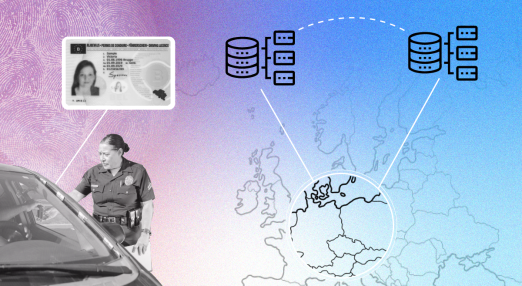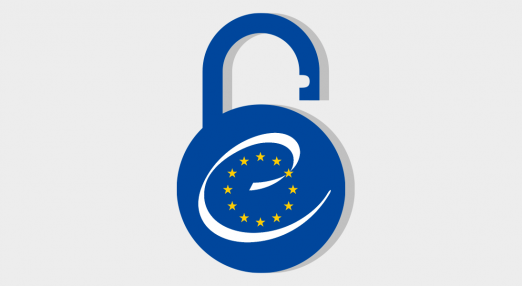cross border
Filter by...
-

GDPR enforcement: European Parliament must guarantee procedural rights to ensure people’s data protection
While it is a step forward in better enforcing the General Data Protection Regulation (GDPR), the European Parliament’s current GDPR Procedural Harmonisation Regulation text is still not enough to safeguard the fundamental rights of people. Today, February 15, the text was approved in the Committee for Civil Liberties, Justice and Home Affairs (LIBE), laying out the blueprints for enhanced procedures for cross-border GDPR complaints and ex-officio investigations.
Read more
-

Europol data deals with violent police forces need “strong data protection safeguards”
Proposed data-sharing deals between Europol and five states in Central and South America needs explicit safeguards if they are to uphold fundamental rights, the European Data Protection Supervisor said at the beginning of May. Police forces in those states have brutal records of violence and torture.
Read more
-

Position Paper: New EU law amplifies risks of state over-reach and mass surveillance
The EDRi network published its position paper on the proposed Regulation on automated data exchange for police cooperation (“Prüm II”). The European Commission’s Prüm II proposal fails to put in place vital safeguards designed to protect all of us from state overreach and authoritarian mass surveillance practices. In the worst case scenario, we may no longer be able to walk freely on our streets as the new law would treat large parts of the population as a criminal before proven otherwise.
Read more
-

Policing: Council of the European Union close to approving position on extended biometric data-sharing network
The Council of the European Union is close to reaching an agreement on its negotiating position on the 'Prüm II' Regulation, which would extend an existing police biometric data-sharing network to include facial images and offer the possibility for national authorities to open up their databases of "police records" for searches by other member states.
Read more
-

Policing: France proposes massive EU-wide DNA sweep, automated exchange of facial images
The French Presidency of the Council is seeking EU-wide comparisons of every DNA profile held by police forces against all those held by other national police forces, as well as EU policing agency Europol, as part of plans to upgrade the ‘Prüm’ network of police databases. It also hopes to automate the police exchange of facial images by eliminating requirements for human review.
Read more
-

Cross-border access to user data by law enforcement in 2021: A year in review
Law enforcement agencies around the world are getting their holiday wish list, thanks to the Council of Europe’s adoption of a flawed new protocol to the Budapest Convention, a treaty governing procedures for accessing digital evidence across borders in criminal investigations.
Read more
-

Nearly 130 public interest organisations and experts urge the United Nations to include human rights safeguards in proposed UN Cybercrime Treaty
Today, EDRi, our member Electronic Frontier Foundation (EFF), and Human Rights Watch, along with nearly 130 organizations and academics working in 56 countries, regions, or globally, urged members of the Ad Hoc Committee responsible for drafting a potential United Nations Cybercrime Treaty to ensure human rights protections are embedded in the final product. The first session of the Ad Hoc Committee will begin on January 17th.
Read more
-

Press release: European Commission jumps the gun with proposal to add facial recognition to EU-wide police database
The European Commission has put forward a proposal to ‘streamline’ the automated sharing of facial recognition images and other sensitive data by police across the EU. What will be discarded in order to ‘streamline’ the process? Vital safeguards which are designed to protect all of us from state over-reach and authoritarian mass surveillance practices.
Read more
-

EU ropes in intelligence agencies for enhanced border checks targeting Afghan nationals
Intensified border security checks targeting Afghan nationals have been agreed by the Council of the EU, with the procedures requiring the extraction of mobile phone data and significant coordination with national intelligence agencies – despite the EU having no competences in the realm of “national security”.
Read more
-

Human Rights Groups Submit Complaint to European Ombudsman Calling for Investigation into EU Surveillance Aid
Privacy International (PI), together with 5 other human rights groups, has submitted a complaint to the European Ombudsman calling for an investigation into EU surveillance aid to non-EU countries.
Read more
-

EFF to Council of Europe: Flawed Cross Border Police Surveillance Treaty Needs Fixing
EDRi member Electronic Frontier Foundations (EFF) has joined European Digital Rights (EDRi), the Samuelson-Glushko Canadian Internet Policy & Public Interest Clinic (CIPPIC), and other civil society organizations in recommending 20 solid, comprehensive steps to strengthen human rights protections in the new cross border surveillance draft treaty that is under review by the Parliamentary Assembly of the Council of Europe (PACE). The recommendations aim to ensure that the draft treaty, which grants broad, intrusive police powers to access user information in criminal cross border investigations, contains a robust baseline to safeguard privacy and data protection.
Read more
-

Germany: Invading refugees’ phones – security or population control?
In its new study, EDRi member Society for Civil Rights (GFF) examines how German authorities sniff out refugees’ phones. The aim of “data carrier evaluation” is supposed to be determining a person’s identity and their country of origin. However, in reality, it violates refugees’ rights and does not produce any meaningful results.
Read more
